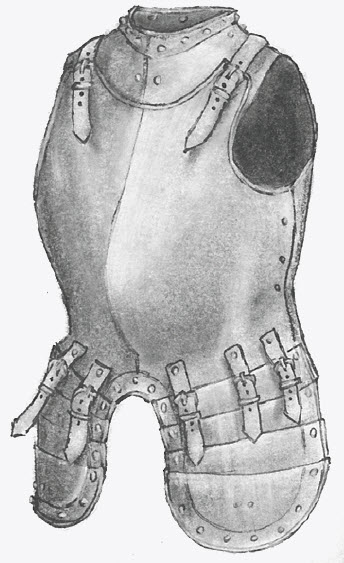Plate Armor
From AmtWiki
A type of Armor
Plate armor is the pinnacle of medieval armor and offers excellent protection against both impact and penetration. Plate armor armor forms a solid metal shell over the protected areas that spreads impact over a large surface area to mitigate concussive force. The individual metal pieces of plate armor are shaped and fitted to articulate together and follow the contours of the body. Plate armor will not deform locally when struck, but will instead behave as a single contiguous whole.
Rules
- See Armor for current rules regarding rating and construction.
